
SPECIAL REPORT 2023
BRITISH VIRGIN ISLANDS

Inside this report BVI Special Report 3 04 BVI Global Funds 06 Engaged, active players in the BVI 10 Keeping options open – the growing demand for BVI hybrid funds 14 The BVI can provide warmth and shelter in the crypto winter 18 BVI funds for families 22 BVI funds — no bad options 26 Private Equity And Venture Capital Funds –The British Virgin Islands Option 30 Fund wind down solutions 34 Cautious but continued interest for crypto
considerations. This is particularly relevant now, considering the resources sector’s challenges and the movement to green energy.
In this report, the experts examine the gamut of BVI funds. Mourant’s Saraid Taylor and Ian Montgomery discuss how start-ups use BVI incubator funds to strike the right balance of complying with regulatory requirements while maintaining and scaling their businesses.
Conyers’ Eric Flaye says hybrid funds offer the flexibility for managers to invest in listed equity or tokens or liquid cryptocurrencies while investing in something less liquid like seed equity, warrants or instruments subject to lengthy lock-up periods and investing schedules.
Harneys Philip Graham, Christopher Pease and Zachary Van Horn in ‘The BVI can provide warmth and shelter in the crypto winter’, state that the BVI boasts a wealth of knowledge and expertise when advising on distressed assets and corporate turn-around. At the same time, Hatstone outlines the steps for forming and operating investment funds by family offices.
O’Neal Webster’s Kerry Anderson and Christopher Simpson detail the variety of choices of BVI funds to suit different
BVI GLOBAL FUNDS

This past year we have seen a confluence of geopolitical tensions, climate crisis, macroeconomic shocks and other events that have created instability in the investment landscape.
Evidence has demonstrated that in times of crisis, investors must stay the course and look beyond the short-term volatility to areas of burgeoning opportunities. The British Virgin Islands (BVI) investment business and funds sector has proven to be a bright spot amid the crisis. The BVI continued to attract a range of funds and investment businesses from around the world.
Investment business increased by 17% over the same period in 2021, and the number of new funds registered increased by 32% over 2021 figures.
The BVI has established itself as the leading provider of offshore financial services, not only due to its best-in-class innovative regulatory regime and business-friendly environment, but also through BVI Finance’s presence at conferences and trade events in our core and emerging markets, and support in maintaining a strong relationship with key stakeholders both locally and internationally.
More recently, we have seen the increasing appeal of the BVI among family offices, which, as they grow and develop, require
the flexibility that BVI fund structures offer. Hybrid funds have also proved to be popular for the same reasons. The BVI has capitalised on crypto’s rise by demonstrating private sector expertise and an innovative regulatory framework. The muchpublicised “crypto winter” has thrown up challenges. However, the BVI remains one of the go-to jurisdictions for crypto or digital asset-focused funds. In particular, the BVI has been able to cater to small and medium-sized managers, incubator funds, “friends and family” funds and venture capital funds in the crypto and digital asset space.
With its growing crypto community across the professional services spectrum, the BVI has the expertise to deal with any troubled projects, commercially and sensibly. This should give institutional investors and company founders a significant level of comfort to secure investment sufficient to ensure the digital asset space thrives.
The BVI has also embraced the increased international focus on environmental, social and governance (ESG) investment
managers, investor types, and structures. Appleby’s Jeffrey Kirk explains why the BVI remains a highly attractive domicile for PE and VC funds.
Rounding out the report, PwC’s Alexander Lower takes us through fund closure from a solvent wind-down perspective to insolvent situations. On the crypto front, we hear from Walker’s Paul Waldron that while the BVI’s cautious approach mirrors international sentiment, it remains a very attractive jurisdiction to launch a crypto or digital asset-focused fund.
It is still undetermined how soon the global economic recovery curve will begin tilting upwards. Ultimately, however, we are excited about the opportunities ahead and confident that the BVI will continue to build on its success and reputation as one of the world’s premier fund centres.
BVI Finance
BVI Finance is the ‘voice’ of the British Virgin Islands’ financial services industry; marketing and promoting its products and services, as well as managing its excellent reputation as a premier international business and finance centre.

BVI Finance was incorporated as a company limited by Guarantee in December 2016 and has operated as a public-private partnership since then. BVI Finance maintains a strong relationship with key stakeholders including Government and its many partners locally and internationally, media outlets and investors in emerging and traditional markets.
Elise Donovan
Elise Donovan is the chief executive officer of BVI Finance and brings to the role wide-ranging work experience in Asia, North America, the Caribbean and Africa. Elise has played a major role in expanding and deepening the BVI’s financial services footprint in cities around world, specifically in the Asia Pacific region, through strategic relationship building, conducting forums and seminars on the BVI’s financial services business, including at major financial institutions.

BVI Finance BVI Finance BVI Special Report 2023 5
Engaged, active players in the BVI
Service providers operating in the British Virgin Islands (BVI) are witnessing a transformation in the type of work being carried out in the jurisdiction, as entities incorporated here are more active and engaged.
“The BVI was known as a high volume, low cost jurisdiction, but this is changing,” comments Mourant partner Ian Montgomery, who heads up the firm’s thriving finance, corporate and funds practice in the BVI. He continues: “The new entities being incorporated in the jurisdiction are a lot more active and tend to be more regulated than in the past. This is leading to more substance being seen across the industry.”
As a result of this, the firms choosing the BVI as their home also need a broader eco system of service providers to attend to their potentially more complex needs.
While this change has contributed to the total number of companies registered in the BVI reducing, the jurisdiction is instead finding growth in other areas, including most notably, among startup and emerging managers.

“The startup space is quite exciting. In the first quarter of 2020, there were approximately 200 incubator and approved funds. Two years later, in the first quarter of this year, this figure jumped to over 420,” says Saraid Taylor, Counsel, Mourant, “So that figure has doubled and now represents over 20% of all funds registered in the BVI. It’s very significant growth.”

Introduced in 2015, the Securities and Investment Business (Incubator and Approved Funds) Regulations, 2015 (the Regulations), built an infrastructure appropriate for smaller managers, allowing them to grow, starting from a low costbase.
Building a track record
Attracting smaller start-up managers and incubator funds has been a key focus for the BVI. The infrastructure is constructed
to allow these firms to build a track record at a low cost – to the benefit of the funds and their investors.
“The BVI is one of the most favourable jurisdictions for these types of managers,” outlines Montgomery. “The country offers novel products aimed at start-up managers and seven years down the line, these groups are forming the cornerstone of the growing industry.”
Although the environment is very supportive of emerging and start-up managers, Taylor identifies a few elements which are key in making sure these entities function to the best of their ability.
“Managers need to strike a balance; they need to be able to meet all their compliance and regulatory obligations as a registered fund and balance that against how much it effectively costs them to maintain and scale their business,” says Taylor.
The reality is regulation is only going to increase and managers need to be prepared for it.
“Often, clients are hoping for less regulation so that they can move quickly and keep costs down. However, they normally still want to be regulated because they want that credibility to help them attract investment, particularly when it comes to open-ended funds. The BVI seems to be getting that balance right by providing a light-touch regulatory framework that allows start-up managers to become regulated at a relatively low cost and to build a track record during those early years,” Montgomery explains.
Helping owners and managers understand the value of getting compliance right is critical and can be challenging at times,
Mourant Mourant BVI Special Report 2023 7
since these organisations often do not immediately see the value in implementing the necessary policies and procedures.
US and beyond
Outlining the types of funds being set up in the BVI at present, Montgomery says there has been an influx of US based managers who are looking to attract overseas investment without necessarily incurring huge costs: “The BVI enables them to have US tax exempt investors who invest in their US master funds through offshore feeder vehicles, and often BVI approved funds are used as the feeder vehicles. This is one area that’s carried on growing.”
On the emerging manager side, there has been a significant amount of activity and inquiry emanating from the Middle East and Asia.
Taylor comments: “The set-up trends are driven by clients and their investors; it’s about where they’re looking to access. Last week, we had a call with Italian fund managers looking for offshore vehicles to set up a standalone start-up fund for their investors based in Latin America. It effectively always spreads across more than one continent in our experience.”

Although the managers’ needs are purely driven by their business and expansion plans, Taylor identifies there are small and niche
managers looking for a setup which is cost proportionate – allowing them to build up a track record without being extremely expensive.
Compliance measures
Globally, regulation and compliance measures have continued to increase. However, there are some distinctions present in the BVI which can help support managers, especially those at the start of their journey.

Montgomery outlines: “The BVI has extremely robust and stringent regimes but there is a lighter touch here which can make compliance less onerous. The government recently gazetted several new measures to comply with international standards. But elements like not needing a local BVI money laundering reporting officer, not needing to appoint an auditor and, for incubator funds, not needing an administrator, are the types of nuances which are becoming more important for clients and making the BVI the ‘go-to’ jurisdiction for start-up managers.”
Mourant
Mourant is a law firm-led, professional services business with over 60 years’ experience in the financial services sector. We advise on the laws of the British Virgin Islands, the Cayman Islands, Guernsey and Jersey and provide specialist entity management, governance, regulatory and consulting services. We bridge the gap between legal advice and its implementation, taking an integrated approach to deliver the best results for our clients.
Our ‘one firm’ approach means that working together with clients we deliver seamless, objective and commercially grounded advice on the comparative advantages and disadvantages of the leading offshore fund jurisdictions. Our team exercises true commercial judgment in delivering advice often going the extra mile, with a personal approach, and forming genuine partnerships with our clients and their advisers.
www.mourant.com
Saraid Taylor
Saraid is counsel in our BVI corporate, finance and funds practice. She has extensive experience advising on a range of corporate finance transactions, equity capital markets and mergers and acquisitions. She also advises on regulatory law, investment funds, corporate restructurings, equity and debt fundraisings and general corporate matters. Before joining Mourant, she worked in the corporate team at another leading offshore law firm advising on Jersey law. She previously worked at Pinsent Masons LLP, London, in its corporate finance team and undertook a secondment at Zurich Financial Services, London.
Ian Montgomery
Ian is a partner in our BVI office and the local practice leader of the BVI finance, corporate and funds team. He has particular experience advising on corporate and finance transactions in the real estate, financial services, energy and technology sectors, including mergers and acquisitions, joint ventures, debt and equity fundraising, public listings, security arrangements, corporate restructurings and corporate and commercial aspects of shareholder and contractual disputes. His clients include leading international law firms and accountancy firms, financial institutions, multi-national businesses, funds and their managers, and high net worth individuals. Prior to joining Mourant, Ian worked for two other offshore law firms in the BVI, as well as Pinsent Masons in London.
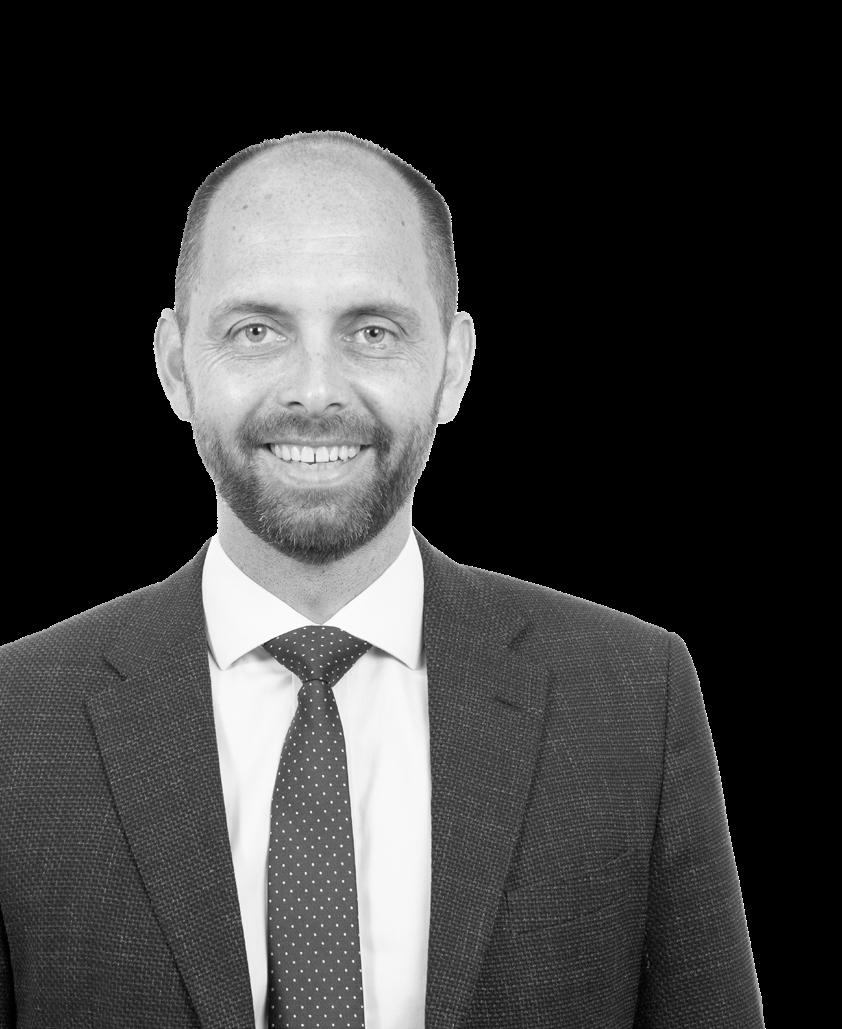
Mourant Mourant BVI Special Report 2023 9
Keeping options open – the growing demand for BVI hybrid funds
Hedge funds and private equity funds were traditionally considered to be two completely different alternative investment classes, but as managers and investors increasingly seek to take advantage of exposure to both asset classes, the industry has witnessed a significant rise in the popularity of hybrid funds.
“Such fund structures aren’t new – the concept has been around for quite a while now. However, in the last couple of years, we’ve seen an increased demand for them, as many managers wish to establish funds with flexible mandates that combine elements of both hedge funds and private equity,” says Eric Flaye, counsel, Conyers.
A hybrid fund is one which holds a mix of both liquid and illiquid investments and seeks to combine elements of fund terms that are customary for both hedge funds (that is, liquid investments) and private equity funds (for the illiquid element), within a single fund vehicle.
Flaye outlines the potential advantages of creating such a structure from a sponsor’s perspective: “They will only need to focus on launching and operating one single vehicle and can preserve the ability to follow quite a broad investment mandate across both liquid and illiquid asset classes.
“Through such a hybrid structure, managers can have the flexibility to opportunistically invest in listed equity or tokens or liquid cryptocurrencies, for example, while not precluding the possibility of investing in something less liquid like seed equity, warrants or instruments subject to lengthy lock-up periods and vesting schedules.”
Managers often want to preserve such flexibility within a single fund vehicle, especially those operating smaller or first time funds. “Such groups are hoping they can yield significant
cost and administrative efficiencies by operating this broader mandate within a single fund vehicle (as opposed to setting-up and operating two or more separate funds),” Flaye points out.
For investors, the potential appeal lies in the ability to make a single allocation to a single fund. Flaye outlines: “It will give them exposure to broader investment or asset classes on a costefficient basis. And this is potentially very attractive, particularly if they have a lot of faith in that specific sponsor group.”
The element of trust is always critical within the asset management industry as a whole, but when considering hybrid funds, the relationship between manager and investor is thrown into sharper focus.
Trust and expertise
Flaye explains how a number of these hybrid funds first launch as start-up efforts, often marketed to a manager’s friends and family and close business network. In these cases, the level of trust is generally high as the connection between the manager and the investors makes this implicit.
However, once those budding managers look to evolve further and set their sights higher by aiming to raise capital from third party professional investors, their value proposition and marketing pitch may need to shift. “You need a very compelling story to tell in order to be able to successfully launch off the back of a hybrid strategy,” Flaye notes.
Marketing can be a potential challenge for hybrid funds, as investors may be confused about the core investment
philosophy of the fund and whether it is more akin to a private equity fund or a hedge fund (which may be important for investors’ own internal allocations and investment committee approval processes). And the sponsor may need to resist the temptation to try to cherry-pick the most favourable aspects of both PE and hedge fund terms for the benefit of the sponsor group, as that may not prove acceptable to a sophisticated investor base.
The manager will also need to assure their target investor base they have the requisite expertise and track record in all relevant asset classes the fund will be investing in, given they may have broad and diverse profiles. For example, cryptocurrency trading strategies are markedly different from early-stage venture capital-style investments in emerging blockchain businesses. Flaye stresses: “It may be tempting for a sponsor to say they’re leading experts in all things crypto and digital assets generally. But they probably will need to be able to clearly articulate to investors that they have genuine expertise and a demonstrable track record in all of the relevant areas, if they want to be able to successfully launch a hybrid fund with sophisticated professional investors.”
Investors also need to place significant trust in the manager’s ability to get the liquidity profile right and in ensuring the redemption terms of the fund are appropriate. Flaye advises: “If the fund is primarily a hedge fund, or it holds the majority of its assets in liquid investments, but has a fairly meaningful portion in illiquid investments as well, then the fund sponsor has to
be very careful to make sure that significant investor lock-up periods apply and/or they have the ability to side pocket or otherwise effectively segregate the illiquid portfolio or suspend withdrawals in the case of a significant run of redemptions.” Therefore, it’s inherent that hybrid funds are generally a more complicated and bespoke product, both in terms of investment strategy and fund terms but also from an operational perspective. A sponsor choosing to launch such a fund needs to have the necessary internal operational expertise in order to effectively operate and manage the various different strategies and differing liquidity profiles.
Asset classes
Historically, hybrid funds were commonly used for activist investing, distressed investing and certain credit strategies. The structure lends itself well to such strategies – e.g. activist investors take stakes in publicly listed entities, acquiring what is effectively a liquid security, but at the time of making the investment, they don’t know exactly whether they’re going to hold it for days, months or potentially even years. A hybrid structure allows them to effectively manage differing liquidity profiles in such scenarios.
Flaye notes that distressed investing is also an asset class which is well placed to benefit from a hybrid structure: “You can acquire listed securities that end up becoming delisted or otherwise illiquid.”

Conyers Conyers
BVI Special Report 2023 11
The emerging crypto and digital assets space is another area enjoying success with the use of hybrid structures. However, Flaye argues that, given the nascent nature of the asset class. a little more work may be required on behalf of a sponsor looking to convince sophisticated investors to invest in a hybrid strategy.
Regulatory choices
Considering the BVI perspective in terms of hybrid funds, alternative investment funds in the jurisdiction are typically either regulated as hedge funds (or what are called “mutual funds” in BVI parlance) or as venture capital/private equity-style funds (or what are called “private investment funds” in BVI).

“These are two distinct, separate regulatory regimes and although there are commonalities between them, each imposes slightly different requirements for the funds in terms of mandatory service providers, audit, fund administration, and the various different restrictions on numbers of investors, assets under management, and minimum investor buy-in amounts, etc.,” says Flaye.
Therefore, managers planning to launch a hybrid fund in the BVI will need to consider which regime they are required to follow and this largely depends on the primary investment strategy of the fund, he notes: “For some hybrid funds, it’s very obvious which is the correct one…if it’s mostly an illiquid fund that has a small portion of liquid holdings, then it should be regulated as a private investment fund.
“Conversely, if it’s really akin to a hedge fund that also wants the ability to have up to, say, 20% to 30% of its holdings in illiquid assets at any given time, then you would need to be regulated as a mutual fund. If the assets are closer to 50-50, then it’s a judgement call for the manager and its legal counsel to make.”
Ultimately, the regulatory regime selected needs to appropriately reflect the liquidity profile of the fund and the investments within it. Flaye warns: “It is quite tempting for a manager to choose one; to cherry-pick the one they think will work best for them from an operational perspective. But they just need to be careful to make sure the most appropriate category of regulatory license is obtained in light of the true characteristics of the fund structure, to keep in good standing with the BVI Financial Services Commission and their investors.”
Flaye concludes by noting that: “While hybrid structures can present certain unique issues and challenges in terms of structuring, the BVI fund industry is very well adapted to cater to such demands given the jurisdiction’s flexible legal regime and unique set of innovative and cost-competitive fund products.”
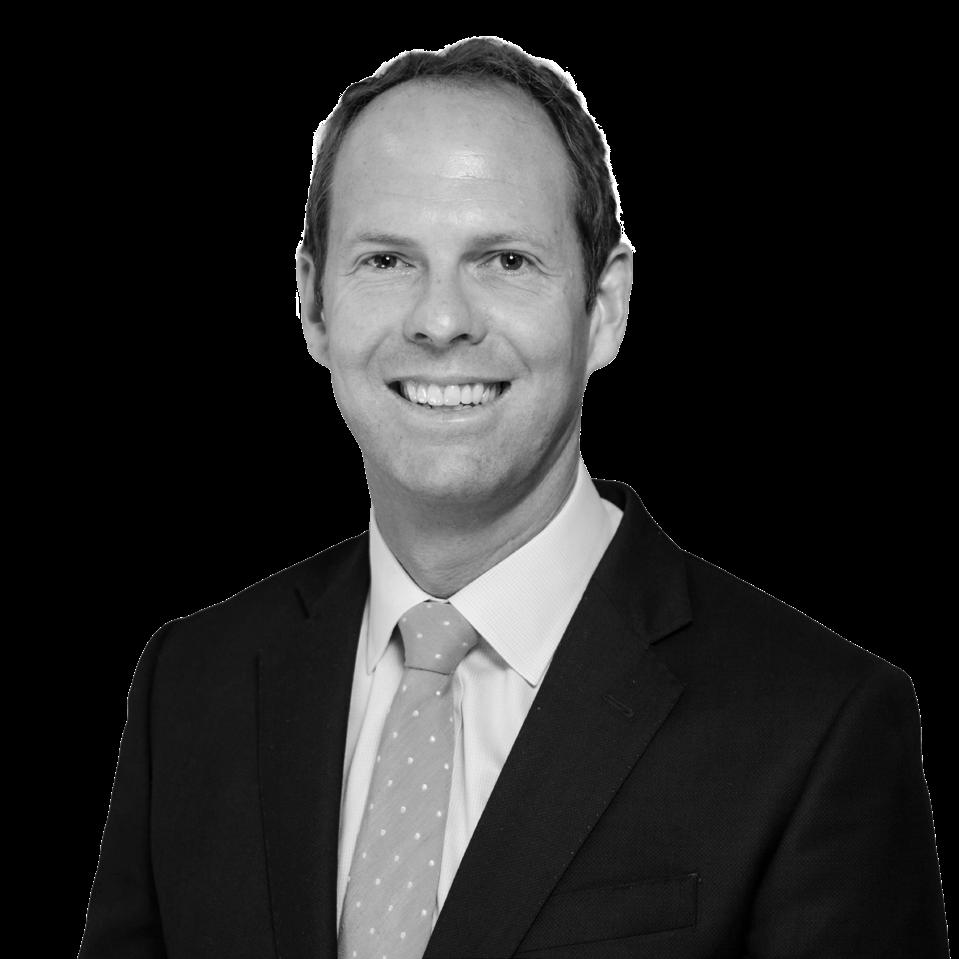
Conyers
Conyers is a leading international law firm with a broad client base including FTSE 100 and Fortune 500 companies, international finance houses and asset managers. The firm advises on the laws of Bermuda, the British Virgin Islands and the Cayman Islands, from offices in those jurisdictions and in the key financial centres of Hong Kong, Singapore and London. Through its global network it provides responsive, sophisticated, solution-driven advice to clients on matters including: general corporate, capital markets, M&A, banking and finance, insurance and reinsurance, investment funds, private equity and venture capital, asset finance (including shipping and aircraft finance), litigation and dispute resolution, insolvency and restructuring, and private client and trusts. The firm also provides a wide range of registered agent, registered office, corporate director and secretarial services, as well as specialised company trust, management, compliance and governance services.
Eric Flaye
Eric Flaye is counsel and head of the London office of Conyers. He is a leading advisor on all aspects of offshore investment funds, including pre-formation strategy, organisational structure, regulatory compliance and transactional activities, for both private equity funds and hedge funds. Eric is also a key member of Conyers’ growing fintech (blockchain and digital assets) practice.
Conyers Conyers BVI Special Report 2023 13
The BVI can provide warmth and shelter in the crypto winter
The British Virgin Islands (BVI) have been the rightful home for some of the largest players in the digital assets space for many years now. The combination of a sophisticated public and private sector with a deep understanding of the industry, along with a stable regulatory environment have created the perfect foundation for even the most complex and intricate blockchain projects to thrive.
It is therefore unsurprising that virtual asset service providers now comprise a sizeable chunk of the approximately 400,000 corporate entities registered in the BVI. But the BVI’s contribution to the digital assets space also means it has encountered its fair share of the industry’s recent troubles.
The challenges faced by the cryptocurrency market in 2022 have resulted in financial distress and even liquidations for some large crypto funds and lenders. This demonstrates the importance of a home jurisdiction that is not merely supportive of the foundation and development of digital asset services, but also provides a supportive and, when needed, robust framework for those in difficulty. The emergence of the crypto winter has highlighted the credentials of the BVI in this regard.

Three arrows to the heart
One of the major catalysts of the current bear market was the collapse of Terra’s UST and LUNA stable coins, which lost their peg to the US dollar and with it, nearly $45bn in value. Terra’s crash caused ripple effects throughout the crypto market.
Prominent cryptocurrency hedge funds such as Three Arrows Capital (3AC), a BVI-domiciled fund structure with operations in Singapore, suffered major losses, which prevented investors from liquidating their positions after 3AC failed to meet margin calls with various digital currency lending firms. After weeks of speculation as to 3AC’s spiraling financial position, the BVI Commercial Court placed 3AC into liquidation and appointed BVI licensed insolvency practitioners to act as joint liquidators over the fund.
The 3AC liquidation has since expanded into other jurisdictions. In July 2022, the BVI joint liquidators filed a Chapter 15 petition in
the US Bankruptcy Court for the Southern District of New York, ultimately obtaining a full recognition order. In late August, the High Court of Singapore recognized 3AC’s BVI liquidation as the foreign main proceeding and its BVI joint liquidators as the company’s foreign representative.
3AC is reported to have had over $3bn worth of digital assets under its management as of April 2022. As such, it was inevitable that there would be contagion and it was not long before numerous other crypto lenders, brokerage firms, funds and exchanges encountered difficulties of their own.
In June 2022, Celsius and Voyager, two large US-based crypto lenders both filed for Chapter 11 bankruptcy. At around the same time, Babel Finance, another large crypto lender, suspended withdrawals due to major losses and in the months since, there have been numerous reports of other funds, lenders and custodians experiencing significant, if not fatal levels of distress.
BVI insolvency regime
3AC’s recent liquidation illustrates the ability of the BVI insolvency regime to facilitate the appointment of licensed insolvency practitioners who could swiftly secure and preserve assets. It also demonstrates the way BVI-appointed liquidators are able to seek recognition and assistance in other jurisdictions, which is crucial in complex cross-border restructurings and insolvencies (bankruptcies).
If the commercially attractive and flexible provisions of the BVI’s Business Companies Act provide the apparatus to take off, the BVI Insolvency Act and Rules provides the safety net when things do not go to plan. The insolvency regime achieves a delicate balance of protecting the rights of creditors – both

Harneys Harneys BVI Special Report 2023 15
secured and unsecured -whilst also enabling viable companies to restructure their debts if the circumstances allow.
The insolvency regime in the BVI offers similar protections to creditors that are found in other major financial centres around the world: its legislative provisions are largely based on the UNCITRAL model law. There are strict eligibility requirements for those who can be appointed as BVI liquidators of insolvent companies and appointees have wide-ranging powers that allow them to collect in and preserve assets of the company, protect them from hostile creditor actions, and ultimately make distributions in accordance with long-established rules of priority.
In cross-border cases, the BVI courts will typically empower BVIbased liquidators to seek recognition and/or use their powers in foreign jurisdictions. Similarly, the BVI courts are also wellattuned to recognizing foreign liquidators and enabling them to deal with assets located in the BVI. The BVI’s adoption of the Judicial Insolvency Network’s ‘Guidelines for Communication and Cooperation between Courts in Cross-Border Insolvency Matters’ ensures that the BVI is part of a formal framework for cross-border cooperation between foreign courts and judges to facilitate coordinated cross-border insolvencies and restructurings.
Of particular importance where financial distress is a consequence of short-term factors, the BVI courts have confirmed in recent years the availability of a restructuring mechanism. This entails the appointment of ‘light-touch’ provisional liquidators who take office alongside, and with the mandate of overseeing and advising, the existing board of directors of the insolvent company, with a view to restructuring
debts and allowing the company to emerge back into solvency. Restructurings are often pursued on a group-wide basis and the BVI’s approach in this area has developed in tandem with the Cayman Islands and Bermuda.
Creditors with security over the assets of a BVI company or over the shares in a BVI company will generally be afforded the right to appoint receivers over those assets at minimal cost. Where appointed over BVI shares, receivers will generally be entitled to vote the shares and take control over assets further downstream in order to realise repayment of their debt.
Sophistication of the BVI
Due to the high volume of BVI companies and the frequency with which the insolvency and restructuring regimes are used, legal and insolvency practitioners in the BVI boast a wealth of knowledge and expertise when advising on distressed assets and corporate turn-around.
In addition, because of its familiarity with entities in the digital assets space, the BVI is spawning a more specialised practice in adapting liquidators’ duties and powers to the preservation and liquidation of digital assets.

While it is essential that a jurisdiction provides the right building blocks, the BVI also has the right architects and tools available to deal with any troubled projects in a commercial and sensible manner. This should give institutional investors and company founders alike a significant level of comfort to secure investment at a sufficient level to ensure the digital asset space thrives.
Harneys
Harneys is a global offshore law firm with entrepreneurial thinking. Experts in British Virgin Islands, Cayman Islands, Cyprus, Luxembourg, Bermuda, Anguilla, and Jersey* law, the firm’s service is built around professionalism, personal service and rapid response. Harneys advises an international client base, which includes the world’s top law firms, financial institutions, and investment funds, as well as high net worth individuals. Harneys is a full service law firm spanning all major transactional, contentious, and private client disciplines and works alongside Harneys Fiduciary, its associated corporate and fiduciary services arm.
*Jersey legal services are provided through a referral arrangement with Harneys (Jersey) which is an independently owned and controlled Jersey law firm www.harneys.com
Philip Graham
Philip Graham is global head of the Harneys Investment Funds and Regulatory groups and head of the firm’s transactional team in the British Virgin Islands. He advises on the laws of the British Virgin Islands and the Cayman Islands and is a leading advisor on all aspects of offshore investment funds, including pre-formation strategy, regulatory compliance and restructuring.
Christopher Pease
Christopher Pease is a partner in the Harneys Litigation, Insolvency and Restructuring team in the BVI. He has experience in all the types of disputes work that frequently arises in the BVI including fraud and bribery claims, disputes relating to the ownership and management of companies, minority shareholder claims, and insolvency and restructuring cases.



Zachary Van Horn
Zachary Van Horn is a member of the Harneys Litigation, Insolvency & Restructuring team in the British Virgin Islands. He has a broad range of experience advising on commercial and corporate disputes across various industry sectors, including contractual, property, and shareholder disputes.
Harneys BVI Special Report 2023 Harneys 17
BVI funds for families
Managing family wealth through a designated family office has become more popular in recent years. Family offices come in many different shapes and sizes. They can be set up as a single family office or as multi-family office and be based in a number of different jurisdictions across the globe.
The decisive criteria for the best structure and jurisdiction will depend on the particularities of each family and their asset structure. It will also depend on how to best implement asset protection mechanisms and succession planning. Historically, family offices have used trust or foundation structures, maybe combined with special purpose vehicles, to hold and manage the family’s wealth and implement succession planning. Such special purpose vehicles will, in turn, own assets like land, real estate, trading companies, securities and even super yachts and fine art and require very bespoke asset management services.
Investment funds are a viable alternative for such special purpose vehicles, especially for families seeking a structure that offers more transparency for its family members and a robust and clear regulatory environment and, importantly, a tax neutral platform. Other key considerations include confidentiality, data protection and cyber security.
Instead of managing multiple, unrelated, special purpose vehicles or accounts, it is more efficient to pool the assets into an investment fund. This will require the structure to have some regulation. Even where the investors are related, the legal framework of a fund structure provides clarity on the rights and obligations of the investors and the manager.
Two further key elements which might make even a single family office wish to adopt a fund type structure for the assets it manages are, control and incentivisation. A fund structure can provide an element of control to the family office in the same way a fund manager controls a private equity fund - the family office can either own all voting shares in the investment fund or set up a separate investment management vehicle, issue all voting shares to that investment management vehicle and own all shares of that vehicle. The family office will be bound by a clearly drafted investment management mandate, setting out investment objectives and strategies of the investment fund. By extension, a fund structure also permits the family office to be remunerated in a way which is consistent with fund
managers and aligns their interests with the families whose assets they manage. This would typically entail charging an annual management fee subject to a high water mark and a fixed fee. This incentivises the family office team to maximise returns. Regular net asset calculations would be provided by third party fund administrators and assets would typically be kept in custody by reputable custodian banks or prime brokers. One of the first steps for setting up an investment fund as a family office vehicle will be to choose a suitable fund domicile. For obvious reasons, there will be a preference for a jurisdiction that does not tax the investment fund itself, i.e. which allows the investment fund to be operated as a tax neutral platform.
The British Virgin Islands (BVI) is one of the most popular and well-established jurisdictions for the formation and operation of investment funds, including those used by family offices. BVI investment fund structures are known globally for their flexibility, allowing investment managers to tailor their offering to the needs of the family office.

Key advantages of BVI investment funds include the following:
• A modern, recognised and robust legal system derived from English common law, including a very flexible corporate statute (the BVI Business Companies Act 2004);
A dedicated and experienced commercial court and a wide pool of experienced investment fund professionals in all major time zones;
Competitive professional and government fees;
Fast turn-around times;
No regulatory restrictions on investment policies, strategies or objectives; and
No requirement to appoint local directors, local functionaries, or local auditors.
Costs for setting up and operating a family office can be quite high. The BVI has created the Approved Fund, a licenced
Hatstone BVI Special Report 2023
Hatstone 19
product that is specifically geared at younger family office structures which are, by their nature, more cost sensitive.
The key characteristics of an Approved Fund are as follows:
The total number of investors is restricted to twenty investors.
The assets of the Approved Fund must not exceed $100m (or its equivalent in any other currency). Should the assets exceed this threshold, then the Approved Fund can quite easily be converted into a more regulated investment fund. This conversion process requires approval by the BVI regulator, the BVI Financial Services Commission. It is a very straight forward application and the operations of the fund will not be interrupted by this conversion process.
No requirement to have an offering document in place, having a short term sheet setting out the liquidity terms and investment mandate of the fund is still recommended.
No requirement to have third party service providers appointed, except for appointment of a fund administrator which will, in short, provide the Approved Fund with registrar and transfer agent and net asset value calculation services. The fund administrator will also assist with due diligence on investors and any filing statutory obligations.
No requirement to file audited financial statements.
Although not required by law, in practice the Approved Fund will often have a third-party investment manager appointed.
It may also consider having reputable persons appointed with the safekeeping of its assets. Also, depending on the domicile of the family members it may be advisable to add further functionaries or features to the fund so that the fund would be recognised by local tax authorities as a tax neutral investment fund.
An Approved Fund must have two directors, one of which must be an individual. Usually, a senior member of the family will sit on the board of directors to control and supervise the management performance of the investment manager. Alternatively, a professional and experienced individual could be appointed to protect the interests of the family office.
The Approved Fund would also need to appoint an authorised representative. The authorised representative acts as conduit between the fund and the BVI Financial Services Commission, ensuring that the fund is being operated in good regulatory standing. Financial statements must be filed annually (which need not be audited) and returns must be submitted to the BVI Financial Services Commission regarding the fund’s status, i.e. the number of investors, total investments, aggregate subscriptions and redemptions, net asset value of the fund and details of any significant investor complaints.
The Approved Fund can be set up in different ways, depending on the assets in which the fund will be invested. It is quite common to set up a family office fund with different share classes each being invested in different classes of assets. This allows family investors to pick the investment they would like to make.
Another option is to set up the Approved Fund as a segregated portfolio company (“SPCs”).
In a single family office context, the segregated portfolios can be used to segregate the assets and also the liabilities into distinct pools, maybe by asset class, strategy or geography. Large single family offices with liquid assets may wish to appoint different investment managers to manage each pool of assets and to segregate them from one another in a structure which they control. Also, the family office could simply provide one segregated portfolio of the fund to each family member. Alternatively, some fund managers use a segregated portfolio per asset acquired to facilitate club deals whereby each deal is offered to a pool of investors who can opt in or out of each particular transaction.
There are significant cost benefits to be achieved by utilising a segregated portfolio company structure rather than setting up multiple fund structures. Adding a segregated portfolio to an existing SPC is much more cost effective than forming a brand new legal entity. There are reduced operating costs too because the company secretary, board of directors and other fees are shared across the SPC rather than having separate boards and company secretaries.
Lastly, Approved Funds are open-ended funds which means that investors have the right to redeem their investment subject to any lock-up period mechanisms which may apply.
As family offices develop and grow, regulated fund structures are increasingly necessary and helpful in allowing them to perform their primary role of managing the family assets. The use of a fund structure provides a recognised and well established legal framework, which allows the family office itself to become a multi-family office, fund manager or boutique wealth manager. This is in addition to permitting a family office to have greater control over the assets being managed and providing the opportunity for the family office team to be incentivised in line with their peers in the corporate fund management environment. The application of regulation and the use of independent administrators and non-executive directors gives additional comfort to the family whose assets are being managed that there are appropriate checks and balances, and that the assets are being securely held.
Hatstone
Hatstone is a leading boutique multi-jurisdictional group providing legal, fund administration and corporate and fiduciary services with offices in the British Virgin Islands, Ireland, Jersey, London, Panama and South Africa.
The firm has a very experienced BVI investment funds practice, which is partner-led and commercial in its approach, providing BVI fund formation, fund administration, corporate, director and regulatory services. Clients value Hatstone’s longstanding experience in the area of investment funds and its active role in the market.
Philipp Neumann
Philipp manages Hatstone’s BVI legal practice and specialises investment funds, fin-tech, finance and regulatory advice. He has a particular interest in alternative investment structures, including formation and restructuring of investment funds. He regularly advises international law firms, financial institutions, trust companies, fund administrators, tax advisory firms and private clients on BVI law. He is based in the BVI offices.

Philipp is a solicitor of the Eastern Caribbean Supreme Court (Virgin Islands), a solicitor of the Supreme Court of England & Wales, 2009 (currently non-practising), a Rechtsanwalt (lawyer) in Germany, 2005 and a Notary Public in the BVI. Prior to joining Hatstone in 2018, Philipp worked for other international law firms in the BVI, France, Germany and Luxembourg advising on corporate, banking, finance, investment funds and regulatory matters. He presents at conferences and client in-house seminars and has published various articles in the professional press in relation to BVI matters.
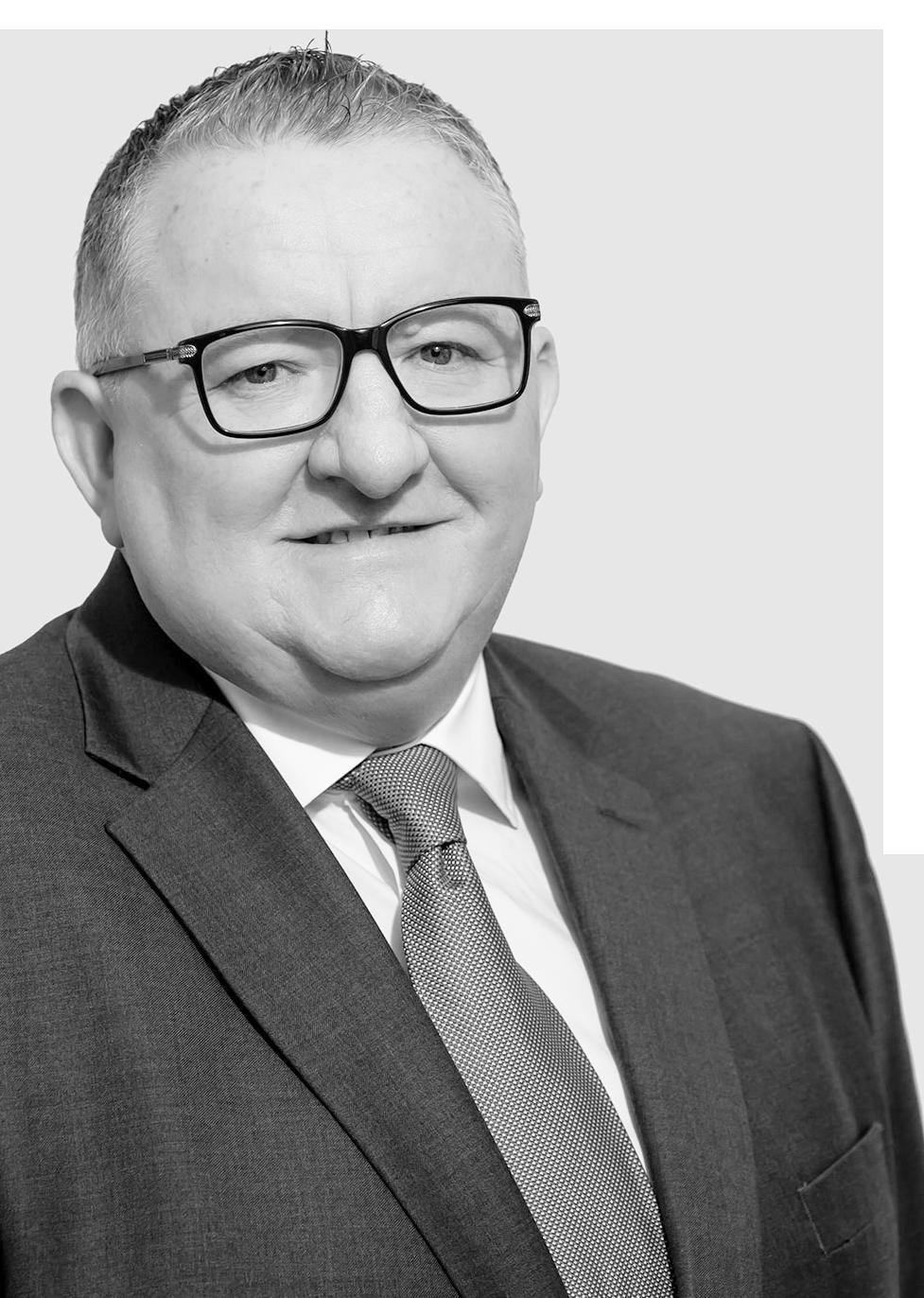
Calum McKenzie
Calum has in excess of 25 years working in BVI financial services, covering all aspects of the industry. Calum is the Managing Director of Hatstone Trust Company (BVI) Limited and works on a daily basis with structures varying greatly in terms of complexity, asset value and activities. Calum has acted for a number of Investment Managers and Hedge Funds during his career with AUM’s being in tens of Billions of
Throughout his career Calum has been approved by the relevant Regulators to act as a director in a number of jurisdictions, in addition to BVI, including the Cayman Islands, Barbados, Nevis and Anguilla. He is a present member of the Council of the BVI Investment Funds Association, a former member of the BVI FSC Fiduciary and Registry Liaison Committee and a Council member of the BVI Association of Registered Agents. He is also a Member of the Institute of Directors, London a member of the Association of Certified Anti-Money Laundering Specialists and a BVI FSC approved Compliance Officer and Anti-money Laundering Reporting Officer.
Hatstone BVI Special Report 2023 Hatstone 21
BVI funds — no bad options
Flexibility has long been a cornerstone of the British Virgin Islands’ financial services industry. BVI companies are often used as public companies and listed on major exchanges worldwide, but they can just as easily be used as an asset-holding vehicle for an individual or family office. This trend continues with BVI funds which offer a variety of choices to suit different managers, investor types, and structures.
Established BVI fund types
The flagship BVI fund is the professional fund, the typical choice for most hedge funds, funds of funds, and alternative investment funds. The professional fund is ideal for high-networth investors. Investors in professional funds are required to subscribe for at least $100,000 and must have a net worth (alone or jointly with their spouse) of at least $1m or must be institutional investors.
The professional fund must have an investment manager, administrator, custodian, and auditor, with exemptions available for the investment manager and custodian requirement. The fund must also submit a full-offering memorandum with subscription documents to the BVI regulator - the BVI Financial Services Commission (FSC) - for approval.
Private funds are limited to 50 investors and must be marketed on a private basis only. This fund has found favour with family offices because it offers the internal structure of a hedge fund combined with the flexibility and privacy of a private investment vehicle. Private funds do not have any restrictions regarding the make-up of investors and no cap on their assets under management. Any family member can qualify as an investor since there is no net worth hurdle to cross. The fact that the
fund cannot market except on a private basis also fits the family office structure as there is no need for marketing to the broader public.
Public funds are retail funds that other jurisdictions would classify as “mutual funds.” These funds are open to retail investors; therefore, there is no net worth requirement for investors. Public funds are the only BVI fund offering available to the general public. The main difference between the public fund, on the one hand, and the professional and private fund, on the other, are their requirements for setup and ongoing compliance.
As might be expected for a public-facing investment entity, the setup requirements are more detailed. The entity must have a prospectus that meets the specific criteria included in the BVI public funds code, such as the requirement to maintain a compliance officer; and is subject to a level of supervision similar to other licensed financial entities.

NEWER FUND TYPES
In 2015 the BVI introduced two new funds: the approved fund and the incubator fund.
The approved fund is often considered a light version of the BVI private fund. It is limited to 20 investors and assets under management of $100m and, like the private fund, has no minimum net worth requirement. This makes the fund suitable for smaller family offices or other closely connected investors. The fund is required to have an administrator, but otherwise, no additional functionaries are mandated. An approved fund does not need a detailed offering memorandum. It is sufficient to file a summary of terms, including a description of its investment strategy and the prescribed investment warnings to investors.
The incubator fund is limited to $20m assets under management, 20 investors, and subscriptions of at least $20,000, thus earning the familiar name – the 20/20/20 fund. This fund is very different from other open-ended BVI funds. It is designed to appeal to emerging fund managers looking to build a track record but don’t have access to large amounts of investor capital – often limited to family and friends – and need a low-cost fund to get started. In addition to the fund’s investors and AUM limits, the fund is limited to a two-year existence. At the end of two years, the incubator fund must convert to a private, professional, or approved fund or wind down its operations. The fund can apply to the BVI regulator for a one-year extension, but in the end, it must either convert to a different fund form or wind down.
The incubator fund is not required to have any fund functionaries, contributing to its low operating cost. Also, like the approved fund, it is only necessary to file a summary of terms, including a description of its investment strategy, and give the appropriate investment warnings. The fund is not required to produce a full offering memorandum.
Private investment fund regime
In 2019, the BVI introduced the private investment fund regime, which now regulates closed-ended funds as private investment funds.
The requirements for recognising a private investment fund (PIF) are similar to those of professional and private BVI funds. As such, a PIF comes in three types: (a) a PIF limited to only 50 investors; (b) a PIF limited to investment marketing on a private basis; and (c) a PIF whose investors are limited to certain institutional and professional investors, i.e., persons whose net worth is at least $1m.
One departure from the position regarding professional and private funds is introducing the “appointed person,” who is responsible for managing, valuing, and safekeeping fund property. Each PIF must have and notify the FSC of the appointed persons’ details.
O’Neal Webster BVI Special Report 2023
O’Neal Webster 23
NOTEWORTHY SIMILARITIES
So far, we have focused on the differences between the types of BVI funds (see table below), but some similarities are noteworthy.
All funds must have at least two directors, an authorized representative, and a Money Laundering Reporting Officer. All funds have prudential reporting requirements.
• All funds must have a valuation policy, complying with the particular fund’s relevant regulations. BVI funds are investment agnostic. There are no restrictions on the type of investment or investment strategy in which a manager might engage.
Funds can be set up as BVI business companies, partnerships, or unit trusts. Economic substance requirements do not apply to BVI funds.
An important note: When a BVI fund requires functionaries, they must be based in “recognised jurisdictions.” The recognised jurisdictions list includes leading countries worldwide, such as the United Kingdom, United States of America, Singapore, China, Hong Kong, South Africa, Switzerland, Bermuda, and Cayman, among others. Functionaries in recognised jurisdictions do not require FSC approval. However, while a fund may appoint a functionary not based in a recognised jurisdiction, such appointment will require FSC approval.
It is clear that no matter where you are based, the type of investors you want to pursue, or the amount of capital to be managed – there are no bad options when it comes to BVI funds.
Fund Investor minimums AUM restrictions Required Functionaries
Professional Net worth of US $1M; US $100k minimum investment
Private 50 investors or private marketing only
None Investment manager, administrator, auditor, custodian
None Investment manager, administrator, auditor, custodian
Public None None Investment manager, administrator, auditor, custodian
Offering document requirements Fund lifespan
Offering memorandum Unlimited
O’Neal Webster
O’Neal Webster holds a decidedly unique position among all British Virgin Islands law firms, being among the first to establish exclusively in the BVI to serve onshore and offshore clients in their corporate, finance, banking, business, real estate, admiralty, investment fund, intellectual property, and trust and estate needs. The firm is recognized for its expert handling of transactional, regulatory, and adversarial matters and is highly-regarded for consistently delivering exceptional service, exceeding expectations in both international and domestic engagements. The firm is ranked in leading legal directories and is the BVI member of Lex Mundi and World Services Group, two top global referral networks. Learn more at onealwebster.com.
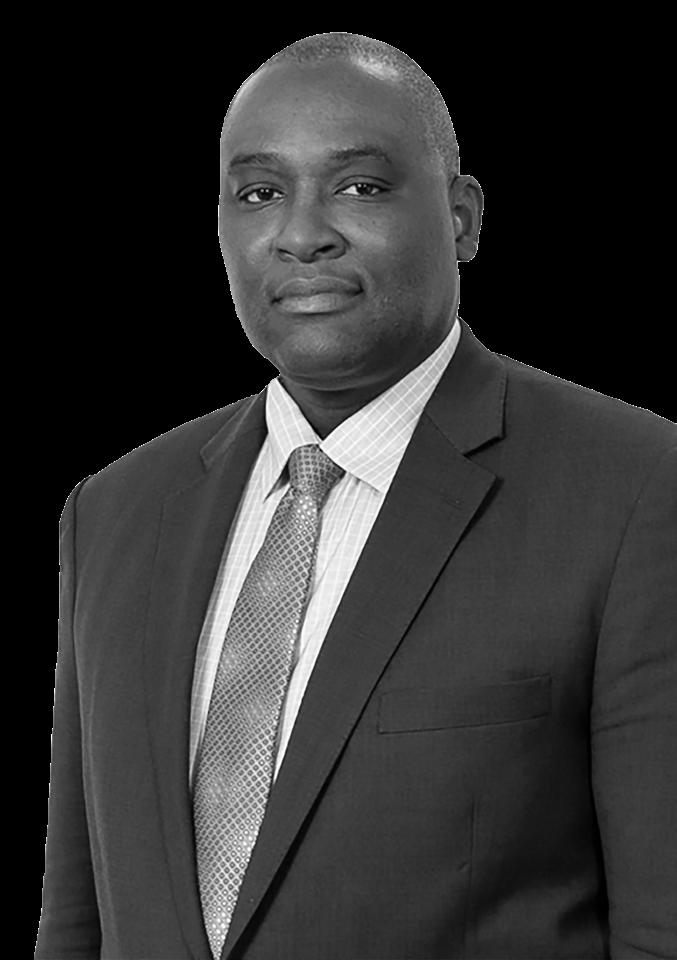
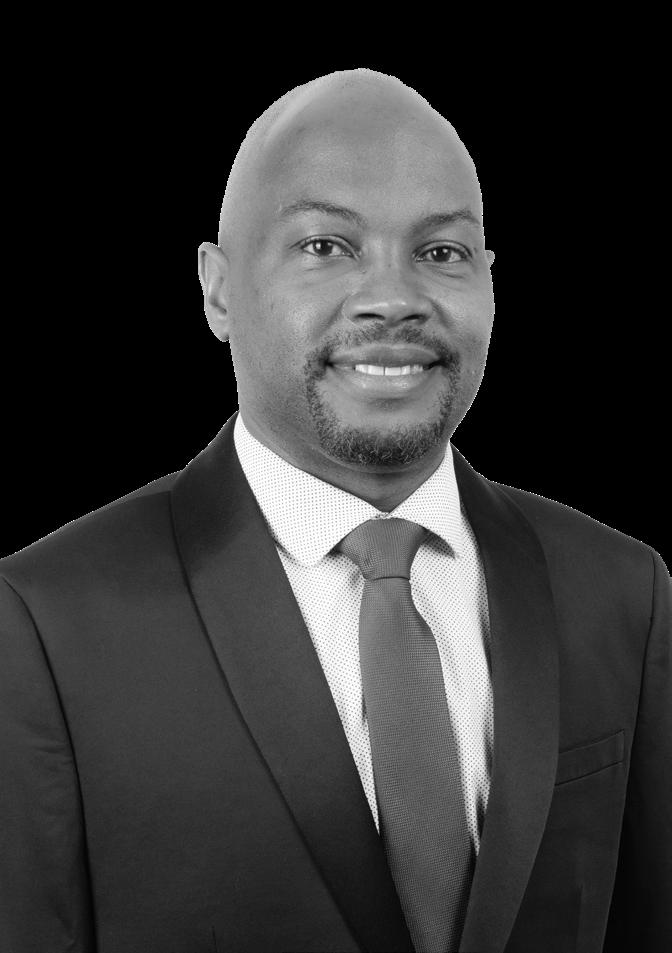

Kerry Anderson
O’Neal Webster partner Kerry Anderson advises an international clientele on British Virgin Islands law and regulatory compliance in funds, corporate structures, and joint venture deals and acquisitions. Deeply experienced in the initial structuring and restructuring of investment vehicles, he often provides continuing legal advice and support throughout their operation. His clients include US- and EU-based fund managers, closed-ended funds, open-ended funds, public funds, and segregated portfolio company funds. He leads the firm’s Investment Funds & Regulatory Department.
Offering memorandum Unlimited
Prospectus Unlimited
Approved 20 investors US $100M Administrator Summary of terms Unlimited
Incubator 20 investors; US $20k minimum investment
Private Investment Fund (closed-ended)
US $20M None Summary of terms 2 years; 3 with approval
None Appointed persons Offering memorandum Unlimited
Christopher Simpson
Partner Christopher Simpson advises leading corporations, financial institutions, and international law firms on all aspects of corporate law and finance, including joint ventures, mergers, arrangements, property and project financing and restructurings. He also advises on investment funds, investment business and regulatory matters, including fintech and digital assets. He has been involved in numerous IPOs and ground-breaking deals, including the first ever BVI court approved corporate arrangement scheme and one of the largest single asset real estate financings in China.
O’Neal Webster BVI Special Report 2023
50 investors or private marketing only; Net worth of US $1M; US $100k minimum investment O’Neal Webster 25
Private equity and venture capital funds –The British Virgin Islands option

The aftermath of the Covid-19 pandemic has started to bite. The IMF’s World Economic Outlook as at October 2022 records a broad-based and sharper-than-expected slowdown in global economic activity. Inflation is at decades high levels. Russia’s invasion of Ukraine and the costs of the pandemic have led to a global cost-of-living crisis.
The global growth is forecast to slow from 6% in 2021 to 3.2% in 2022 to 2.7% in 2023. Conversely, global inflation is expected to rise from 4.7% in 2021 to 8.8% in 2022 and then, thankfully, to decline to 6.5% in 2023 and 4.1% by 2024.
The IMF’s prognosis is that monetary policy should stay the course, in order to restore price stability and fiscal policy should aim to alleviate the cost-of-living pressures, while maintaining a sufficiently tight stance aligned with monetary policy. The IMF economists are of the view that structural reforms can further support the fight against inflation by improving productivity and easing supply constraints, while multilateral cooperation is necessary for fast-tracking the green energy transition and preventing fragmentation.
How can these macroeconomic goals be implemented and facilitated on a microeconomic, day-to-day basis? A major driver of global investment, trade, value creation and productivity has been the private equity (PE) industry, including its subset, the venture capital (VC) sector. Preqin estimates that the PE market has tripled in the past decade growing from approximately $2trn in 2010 to over $6trn in 2021. The PE industry is a major driver of adding value and often provides much-needed consolidation in the business sectors and asset classes to which the PE and VC funds deploy their investments. In addition, the industry has been at the forefront on environmental, social and governance (ESG) investment considerations, bringing about positive societal interventions. This is particularly relevant now, considering the challenges that the global power-generation sector faces flowing from the Ukrainian invasion and the movement to green energy.
Two crucial questions face PE sponsors when launching new funds and investment portfolios, namely the choice of jurisdiction and the choice of vehicle. International Financial
Centres (IFCs) (aka offshore jurisdictions) have always been popular and well-utilised in launching PE funds (targeting more mature assets and classes) and seeking to add value to those private investments and businesses and VC funds (in targeting start-ups and new technology businesses). Some of the IFC advantages, such as tax neutral environments are well documented and often over emphasised, particularly by onshore competitor jurisdictions. However, there are a myriad of reasons as to why private fund sponsors and investors make use of jurisdictions like the British Virgin Islands (BVI) as their closed-ended fund domicile.
In response to European Union overtures that the BVI should regulate closed-ended as well as open-ended funds, in 2020 the BVI introduced an innovative and commercially orientated regulatory regime for PE, VC and other sector closed-ended funds. The BVI private investment fund (PIF) infrastructure provides for recognition by the BVI Financial Services Commission (FSC) of PIFs. As at Q2 2022, 2,257 BVI limited partnerships have been formed of which 295 are PIFs that have been recognised by the FSC. The PIF regime therefore now opens BVI closed-ended funds to those institutional investors whose investment parameters restrict investment only to regulated funds.
PIFs will generally be formed as a BVI company (including as a segregated portfolio company), a limited partnership or a unit trust. BVI limited partnership law underwent a material modernisation and commercialisation exercise in 2017 through the promulgation of the BVI Limited Partnership Act 2017. The drafters of this legislation were specifically driven by the needs and wants of the PE and closed-ended funds sector more generally. The end result being a built-for-purpose, worldleading PE and VC vehicle.
Appleby BVI Special Report 2023
Appleby 27
The benefits and appeal of BVI limited partnerships, however, is not the sole rationale for PE fund sponsors electing to use the BVI as the jurisdiction of domicile for their funds. The BVI is renowned as a corporate incorporations centre. BVI active business companies’ number (as at Q2 2022) over 370,000. These companies are often used by PE funds as downstream asset holding entities and facilitate mergers, consolidations and acquisitions of assets held in those companies.
Due to the sheer volume of companies incorporated in the BVI, the FSC and its corporate registry division have in place two of the most innovative and efficient electronic financial services systems, the Virtual Integrated Registry Regulatory General Information Network (VIRRGIN) and the Beneficial Ownership Secure Search System (BOSSs). The VIRRGIN and BOSSs electronic platforms make the BVI one of the most technologically advanced and user-friendly IFC jurisdictions facilitating transactions and corporate registry and FSC filings.
The BVI has, to date, elected not to enact specific legislation incorporating ESG principles. When working with clients, particularly PE clients, in setting up and operating BVI ESG PE funds, it is the fund’s constitution or partnership agreement which sets out the fund’s ESG and investment and operating principles. These principles deal with environmental, social, and/or health and safety objectives and schedules identifying prohibited activities which the fund will not invest in or finance and provides the mechanism for enforcement. This freedom and flexibility offered in the BVI corporate, partnership, trust structures and funds regime provide the ESG fund manager with maximum versatility in structuring an ESG fund.
In the event that the PE fund is to leverage the equity held in the fund and maximise investment returns through fund
financing, the BVI is often the lender’s jurisdiction of choice. This is because, in taking security over assets of the borrower and affiliated entities in order to secure the loan, the BVI offers a bespoke creditor-friendly environment. Under BVI law, a dual system of registration of security over assets exists. A mandatory private registration regime whereby the grantor (chargee or mortgagee) of the security must enter details of the security granted over its assets in the BVI company’s private register of charges and a voluntary public registration regime whereby the security may be registered on the file for that BVI company as maintained by the BVI corporate registry. The order and timing of the public registration determines priority of security interest in the charged assets. This system provides a clear and determinable mechanism to ascertain what security is registered over the assets of the BVI company and the priority of those interests and thereby provides lenders and other creditors with certainty and comfort.

In the final analysis the flexibility of BVI’s corporate and limited partnership laws, the Territory’s legal and regulatory infrastructure coupled with the strength and expertise of its service providers and of the BVI’s commercial court mean that the BVI is and remains a highly attractive domicile for PE and VC funds.
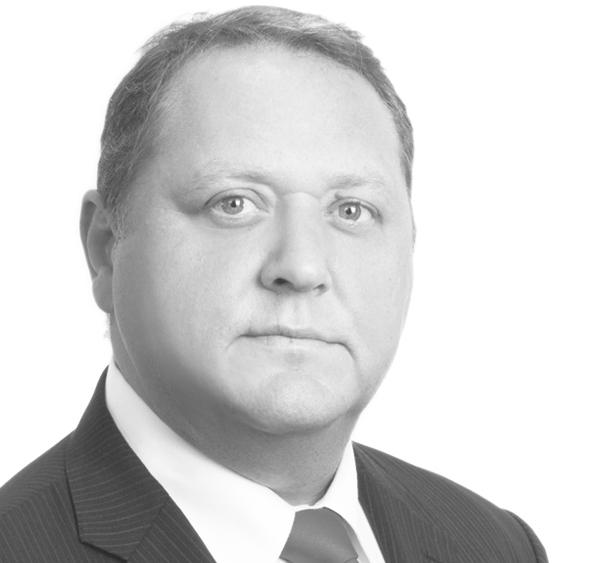
Appleby
Appleby is one of the world’s leading international firms. Our global teams of legal specialists advise public and private companies, financial instituions and private individuals.
Through Appleby Global Services, we offer a range of administration, reporting and fiduciary services focused on corporate structures.
Weare regularly recognised for our professionalism, integrity and excellent client service, and these are the values we pride ourselves on and are at the core of our business.
Jeffrey Kirk
Jeffrey Kirk is the managing partner of the Appleby British Virgin Islands office and he leads the BVI office Corporate Practice Group. He advises on public and private M&A, capital markets, banking & finance, FinTech including digital assets, investment funds & services, private equity, (re)insurance and other corporate matters. He has extensive experience advising on the laws of the BVI, Bermuda and the Cayman Islands and is a frequent speaker and panelist at seminars and conferences. Jeffrey has been ranked in the 2020 Chambers Global listings as an eminent practitioner and as a leading individual by The Legal 500 since 2014 and as highly regarded by the IFLR1000.
Appleby BVI Special Report 2023 Appleby 29
There is correspondingly less commentary on the inevitable corollary: the end. What we call the beginning is often the end. And to make an end is to make a beginning (T.S. Eliot).
Funds come to an end for a multitude of reasons. On one hand, underperformance, fixed termination dates or illiquidity may necessitate closure. On the other, more ominous factors can be at play such as a market collapse, adverse litigation, regulatory action, perhaps fraud.
This article approaches fund closure primarily from a solvent wind down perspective with thoughts on insolvent situations.
Wind down
Investment managers focus on how to generate returns for investors, while steering their fund through an increasingly complex regulatory and compliance landscape. When it’s time to wind down, managers and fiduciaries face an array of challenges. Foresight and planning are crucial to preserve investors’ capital and ensure a smooth closure process. How then does a fund begin to wind down?
Planning
After the decision is reached to close a fund, the manager and/or directors will devise a detailed wind down plan with input from all main departments including investment
Fund wind down solutions
New funds and growth attract fanfare.
management, investor relations, tax and legal. This plan will define key staff required during the wind down process, risks (with a corresponding mitigation strategy) and timeline. Often, a fund will turn to a professional adviser/specialist wind down manager or liquidator to handle the final stages of a wind down, which allows for the effective transition of all core streamlined fund operations away from the incumbent manager together with certain supporting functions such as tax and fund accounting.
After consultation, and considering the fund’s constitutional and governing documents, the wind down plan will culminate in step-by-step milestones to see the fund ready for formal closure.
Operations
An assessment will be made of the fund and its operations, with a particular focus on how best to return capital to investors, while maximising value and minimising costs. A vital aspect of effective fund management in a wind down is the ability to control costs by establishing the “must have” versus the “nice to have” for the fund. Dated legacy functionalities across IT and third party service providers should be evaluated based on the new needs of the fund with new, pragmatic, cost-conscious fee structures determined.
Institutional knowledge
Retention of key staff is often difficult as well as costly. Ahead
of any departures, data, including the detail of operational processes, must be safeguarded. Compliance and procedure manuals, investor information, valuation models, NAV breakdowns, cash summaries and tax related data are integral to a wind down, especially if engaging a wind down manager or liquidator.
Management of assets
In order to aid an orderly wind down, most investment managers, in conjunction with the fund’s board of directors, will suspend subscriptions and redemptions and then make compulsory redemptions to investors. These actions will prevent a rush of redemptions and mitigate liquidity challenges which, if not properly managed, can cause solvency risks.
Coordinating with investors
Investors are at the heart of every fund and effectively communicating with and managing investors’ expectations is a priority. The timeline for a wind down and final distributions will be impacted by the nature and complexity of a fund’s portfolio. Timing should be clearly communicated to investors who will be eager to know when they will receive their final distributions, statements and tax documentation.
Other aspects
During planning, sufficient time should be allocated to attend to the final audit, tax return, and resolution of any outstanding issues including regulatory and compliance matters.
Additionally, all contracts with third party service providers are reviewed to identify appropriate termination procedures. Throughout the wind down, a fund must keep up with its regulatory, compliance, KYC and AML requirements whilst adhering to local and international regulations.
Performing the wind down
This will focus on achieving the wind down plan, realising liquid and illiquid assets and winding down the fund’s operations. In funds with highly fragmented investor populations, and depending on the wind down time horizon, there is likely a significant range of appetites for near term liquidity versus hold to maturity.
Liquid assets
Liquid positions are by their nature relatively easy to close out. However, consideration should be given to any particularly large holdings and market sensitivities with thinly traded equities to avoid adverse price movement. A common value maximisation strategy is to sell positions in tranches over a number of weeks.
Illiquid assets
Illiquid assets are more challenging, particularly where there are litigious matters or insolvent investments, which can cause an extended wind down period.
Liaising with the managers of funds holding illiquid assets to understand timescales involved and the barriers to monetising

PWC BVI Special Report 2023
PWC 31
investments will yield useful information that informs the wind down strategy. To control costs, legal, tax and accounting fees associated with illiquid investments require timely oversight.
To avoid a protracted wind down, a manager might explore selling illiquid assets on the secondary market. This will be at a discount and there is balance to be struck between ongoing costs, realisable value and holding risk.
Specialist wind down managers offer liquidity auctions with price discovery, a process that commences with collating volume and pricing expectation of the vendor group. This is then offered to qualified bidders through a competitive bid process. Ultimately, the successful bidder(s) will be those offering to acquire the most volume at the highest price point. Importantly, all vendors who have offered their positions at this price or less will receive the same prices; that is, the price of the winning bid.
As the underlying investments are realised, capital is returned to investors. Liabilities of the fund are discharged, final investor statements distributed, counterparty contracts terminated, and necessary tax and accounting matters settled.
Formal closure
In the final stage, the fund will be formally wound down within the applicable legal and regulatory framework. For certain funds, this will involve deregistration, the cancellation or revocation of regulatory licences and a solvent liquidation process that concludes with the fund’s dissolution.
Insolvency
When a fund is insolvent, for example, an inability to pay redeemed creditors, counterparty obligations or margin calls in
PWC
In the British Virgin Islands, PwC has a dedicated team working together for a common purpose — building relationships that create value for you and your business. This is PwC. Every day our people work with you to build the value you’re looking for.
With many years of excellence in the British Virgin Islands, we provide industry focused advisory and consulting services for public, private and government clients. Our primary area of focus is the international financial services industry.
At PwC, our purpose is to build trust in society and solve important problems. We’re a network of firms in 152 countries and more than 327,000 people who are committed to delivering quality in assurance, advisory and tax services.

leveraged situations, a formal insolvency process is necessary. Briefly, for US onshore funds, a Chapter 7 bankruptcy entails the appointment of a bankruptcy trustee who liquidates the debtor’s assets and pays creditors in accordance with the provisions of the US Bankruptcy Code. Alternatively, a Chapter 11 reorganisation provides a restructuring solution with oversight from the court or bankruptcy trustee by facilitating an adjustment of debts, by reduction, extension of time or through a more comprehensive renegotiation.
Offshore funds, colloquially those incorporated in Cayman, the BVI or Bermuda, broadly follow a similar insolvency regime based on English common law. A court appointed liquidator will realise assets, pay creditors in accordance with the prescribed priority and investigate the activities of the fund to maximise asset realisations for the benefit of creditors.

In any jurisdiction, insolvency processes may take years, this especially applies in litigious or contentious scenarios. Investors are likely to receive distributions at substantial discounts to NAV. It is recommended for fund stakeholders to seek legal and professional advice in such cases to seek to protect their position insofar as is possible.
The author is the managing director of PricewaterhouseCoopers (BVI) Limited and a Licensed Insolvency Practitioner in the British Virgin Islands. He regularly winds down funds in both solvent and insolvent situations acting as court appointed liquidator where necessary.
Alexander Lower
Alexander is the managing director of PwC in the British Virgin Islands. He provides financial advisory services to companies, creditors, banks, financial institutions and other stakeholders.
As a licensed BVI insolvency practitioner, Alexander takes a wide range of appointments and acts as liquidator and receiver on matters which involve cross-border asset tracing and recovery, fraud investigation, enforcement and restructuring.

Alexander’s industry experience includes funds, real estate, aviation, shipping, construction, manufacturing, engineering and retail. A selection of his case experience includes:
Winding down a group of 18 funds, defining and executing asset realisation strategies: litigation claims against sovereign nations, bond refinancing transactions, real estate sales, closing out illiquid positions, paying dividends to investors.
Solvent voluntary liquidator of a group of 6 BVI funds, winding down operations and making distributions to investors.
Court appointed liquidator of a number of BVI funds, realising assets, driving complex cross-border litigation, and liaising with regulatory authorities.
• Court appointed Liquidator of a BVI company with group power generation assets of US$1.8bn, cross-border litigation claims, asset recovery, working with litigation funders and paying dividends to creditors.
Receiver of shares of five BVI companies with real estate assets of US$125m, appointed as joint nominee shareholder to cement control of the structure.
Court appointed Receiver of shares of a BVI company with listed subsidiaries and global operations including PRC, Hong Kong, Taiwan and Vietnam.
Court appointed Receiver of private bank owning company, asset tracing and recovery, conducting a sale process culminating in a successful transaction.
Prior to his role at PwC Alexander worked for another Big 4 BVI firm and previously in the UK, for a leading insolvency and restructuring practice in London. Alexander is a member of R3 (UK), the Insolvency Practitioners Association (UK), the Restructuring and Insolvency Specialists Association (BVI), the Institute of Chartered Accounts of England and Wales (UK) and the Institute of Directors (UK).
PWC BVI Special Report 2023
PWC 33
Cautious but continued interest for crypto
Q&A with Paul Waldron, Walkers
1. How has the sentiment towards crypto and digital assets changed in the past year? Does this differ within the BVI compared to other regions?
Sentiment in BVI towards crypto and digital assets generally has largely tracked sentiment internationally. Interest in crypto and digital assets generally spiked during the pandemic, with prices for Bitcoin and most major crypto currencies, coins and NFTs hitting a peak in late 2021. Since then, as the prices of crypto currencies and tokens drifted lower (and in some cases to close to zero) the sense of FOMO gradually evaporated from the market. Managers and investors have taken a more cautious approach to investing in crypto generally. Following some highprofile failures of crypto-focussed hedge funds, exchanges and lenders during the course of 2022 managers and investors are taking a harder look at investment in crypto and digital assets. That said, we still see considerable interest in this space, and continue to receive a steady flow of queries and instructions. This is mirrored by my colleagues in Walkers’ other offices.
2.What impact has this shift had on your business and on the BVI as a fund jurisdiction?

The shift in sentiment has resulted in a less exuberant and more cautious approach to launching new crypto funds, and something of a dip in the flow of new instructions. However BVI continues to be a very attractive jurisdiction to launch a crypto or digital asset-focused fund. In particular, BVI is the go-to jurisdiction for small and medium-sized managers, incubator funds, ‘friends and family’ funds and venture capital funds in the crypto and digital asset space.
3. Are crypto clients’ requirements changing in the BVI and if so, how are you responding to these additional demands?
Crypto managers’ requirements are evolving as the crypto sector matures, but this is a gradual process. As elsewhere crypto managers are watching the collapse of competitors and crypto service providers during the course of 2022. For the first time, we are now advising BVI crypto managers who may have exposure to collapsed crypto exchanges or lending platforms and who may need to restructure or rationalise their operations. We anticipate crypto managers will be focusing more on the small print of their fund documents and service contracts, and looking for guidance from BVI counsel to avoid industry pitfalls.
Walkers BVI Special Report 2023
Walkers 35
4. Can you identify the most significant areas of growth going forward within the BVI crypto space and the triggers which could affect their trajectory?
The BVI is in the process of passing legislation to regulate virtual asset service providers (or “VASPs”). BVI has taken a two-step approach here. First of all VASPs are required to ensure compliance with the BVI AML regime by 1 December 2022. Secondly, within six months of the new VASP legislation coming into force existing VASPs will have six months to register with the FSC (the BVI financial regulator). We anticipate a lot of activity for crypto clients in this space in 2023.
We are also seeing the increased use of decentralised autonomous organisations (“DAOs”) by crypto token issuers. We expect to see increased use of BVI structures for DAOs. Regulation elsewhere could result in a shift to BVI for DAO vehicles.
5. What are the main advantages of setting up a crypto fund in the BVI and what are the primary challenges managers face in this regard?
There are a number of benefits to using the BVI as the domicile for a crypto fund and / or a crypto investment manager. First of all BVI has a very well established but flexible funds regulatory regime. The existing rules relating to the establishment and operation of hedge funds and venture capital funds apply equally to new crypto funds. The FSC is also very familiar with and comfortable with crypto and digital assets generally. This is one of the reasons which BVI has developed a well-earned reputation as a crypto-friendly jurisdiction. The sheer volume of BVI crypto funds, ICOs and digital asset start-ups means that the larger crypto investors are already very familiar and comfortable with BVI as a jurisdiction.
Another advantage is speed to market – the FSC is committed to turning around new fund applications within five business days. The FSC typically achieves this and high-quality fund and approved manager applications are routinely approved in five business days or fewer. While this has obvious attractions to all investment managers this is of particular benefit in the fast moving crypto space. Another well-known advantage is cost – BVI funds and approved mangers are very cost effective to both establish and operate. For starters a BVI company or limited partnership is an extremely cost-competitive vehicle. In addition the FSC’s fees are competitive as against the other main offshore jurisdictions. Furthermore the FSC does not impose a local audit requirement, which means managers are free to shop around widely for the most suitable and cost-effective audit solutions. In many cases the FSC is happy to waive the audit requirement entirely for closed-ended / venture capital funds, in recognition of the fact that many investors in such funds have little use for annual audited financial statements.
The BVI approved investment manager (discussed elsewhere) is another useful tool for crypto managers. They are cost-effective to establish and operate, and can be launched in tandem with a new fund, this saving crucial time to market.

Few BVI-specific challenges arise for managers of BVI crypto funds. However for some crypto managers the BVI anti-money laundering regime can be an education. BVI (and all the main offshore jurisdictions) follow international best practice in this area. First time crypto managers are not always immediately aware of the importance of the BVI AML and sanctions regimes. The AML regime can be a challenge sometimes for pure token issuers – while they do not always fall strictly within scope of the AML regime best practice is to comply with it anyway, on the assumption that any gaps in the AML regulations will shortly be closed. The AML regime can also present some challenges for managers seeking to accept in-kind crypto subscriptions (as in other jurisdictions).
Walkers
Walkers is a leading international firm that provides legal, corporate and fiduciary services to global corporations, financial institutions, capital markets participants and investment fund managers. It advises businesses partnering with or investing in fintech firms, as well as financial institutions and asset managers developing their own fintech products and services. Walkers covers fintech’s core financial industry sectors – asset management, investment, banking, finance, insurance, trading and exchanges, and payments – with particular expertise in advising businesses specialising in blockchain, virtual assets (including Web3, DeFi and NFTs), the metaverse and alternative model finance.
Paul Waldon
Paul Waldron is a partner in the Global Investment Funds Group and is based in Walkers’ BVI office. He has over 15 years’ experience in both hedge funds, private equity funds and approved managers.
Paul advises institutional asset managers and established and start-up investment managers on all aspects of investments funds matters, including pre-formation strategy, launches, governance, reorganisations, ongoing operations, exit and termination. He also regularly works with managers and service providers in the fintech space.

Walkers BVI Special Report 2023 Walkers 37
BVI Finance is the ‘voice’ of the British Virgin Islands’ financial services industry; marketing and promoting its products and services, as well as managing its excellent reputation as a premier international business and finance centre.

BVI Finance was incorporated as a company limited by Guarantee in December 2016 and has operated as a public-private partnership since then. BVI Finance maintains a strong relationship with key stakeholders including Government and its many partners locally and internationally, media outlets and investors in emerging and traditional markets. For further information see www.bvifinance.vg
Mourant is a law firm-led, professional services business with over 60 years’ experience in the financial services sector. We advise on the laws of the British Virgin Islands, the Cayman Islands, Guernsey and Jersey and provide specialist entity management, governance, regulatory and consulting services. We bridge the gap between legal advice and its implementation, taking an integrated approach to deliver the best results for our clients.
Our ‘one firm’ approach means that working together with clients we deliver seamless, objective and commercially grounded advice on the comparative advantages and disadvantages of the leading offshore fund jurisdictions. Our team exercises true commercial judgment in delivering advice often going the extra mile, with a personal approach, and forming genuine partnerships with our clients and their advisers. Learn more at www.mourant.com
Harneys is a global offshore law firm with entrepreneurial thinking. Experts in British Virgin Islands, Cayman Islands, Cyprus, Luxembourg, Bermuda, Anguilla, and Jersey* law, the firm’s service is built around professionalism, personal service and rapid response. Harneys advises an international client base, which includes the world’s top law firms, financial institutions, and investment funds, as well as high net worth individuals. Harneys is a full service law firm spanning all major transactional, contentious, and private client disciplines and works alongside Harneys Fiduciary, its associated corporate and fiduciary services arm.
*Jersey legal services are provided through a referral arrangement with Harneys (Jersey) which is an independently owned and controlled Jersey law firm Learn more at www.harneys.com


Appleby is one of the world’s leading international firms. Our global teams of legal specialists advise public and private companies, financial instituions and private individuals.
Through Appleby Global Services, we offer a range of administration, reporting and fiduciary services focused on corporate structures.
Weare regularly recognised for our professionalism, integrity and excellent client service, and these are the values we pride ourselves on and are at the core of our business. For further information see www.applebyglobal.com
Conyers is a leading international law firm with a broad client base including FTSE 100 and Fortune 500 companies, international finance houses and asset managers. The firm advises on the laws of Bermuda, the British Virgin Islands and the Cayman Islands, from offices in those jurisdictions and in the key financial centres of Hong Kong, Singapore and London. Through its global network it provides responsive, sophisticated, solutiondriven advice to clients on matters including: general corporate, capital markets, M&A, banking and finance, insurance and reinsurance, investment funds, private equity and venture capital, asset finance (including shipping and aircraft finance), litigation and dispute resolution, insolvency and restructuring, and private client and trusts. The firm also provides a wide range of registered agent, registered office, corporate director and secretarial services, as well as specialised company trust, management, compliance and governance services. Visit us at www.conyers.com
O’Neal Webster holds a decidedly unique position among all British Virgin Islands law firms, being among the first to establish exclusively in the BVI to serve onshore and offshore clients in their corporate, finance, banking, business, real estate, admiralty, investment fund, intellectual property, and trust and estate needs. The firm is recognized for its expert handling of transactional, regulatory, and adversarial matters and is highly-regarded for consistently delivering exceptional service, exceeding expectations in both international and domestic engagements. The firm is ranked in leading legal directories and is the BVI member of Lex Mundi and World Services Group, two top global referral networks. Learn more at onealwebster.com. Learn more at www.onealwebster.com

Walkers is a leading international firm that provides legal, corporate and fiduciary services to global corporations, financial institutions, capital markets participants and investment fund managers. It advises businesses partnering with or investing in fintech firms, as well as financial institutions and asset managers developing their own fintech products and services. Walkers covers fintech’s core financial industry sectors – asset management, investment, banking, finance, insurance, trading and exchanges, and payments – with particular expertise in advising businesses specialising in blockchain, virtual assets (including Web3, DeFi and NFTs), the metaverse and alternative model finance. Visit us at www.walkersglobal.com
In the British Virgin Islands, PwC has a dedicated team working together for a common purpose — building relationships that create value for you and your business. This is PwC. Every day our people work with you to build the value you’re looking for.
With many years of excellence in the British Virgin Islands, we provide industry focused advisory and consulting services for public, private and government clients. Our primary area of focus is the international financial services industry.
At PwC, our purpose is to build trust in society and solve important problems. We’re a network of firms in 152 countries and more than 327,000 people who are committed to delivering quality in assurance, advisory and tax services. Find out more and tell us what matters to you by visiting us at www.pwc.com.

Hatstone is a leading boutique multi-jurisdictional group providing legal, fund administration and corporate and fiduciary services with offices in the British Virgin Islands, Ireland, Jersey, London, Panama and South Africa.
The firm has a very experienced BVI investment funds practice, which is partner-led and commercial in its approach, providing BVI fund formation, fund administration, corporate, director and regulatory services. Clients value Hatstone’s longstanding experience in the area of investment funds and its active role in the market. Visit us at www.hatstone.com

Directory
Directory

















































